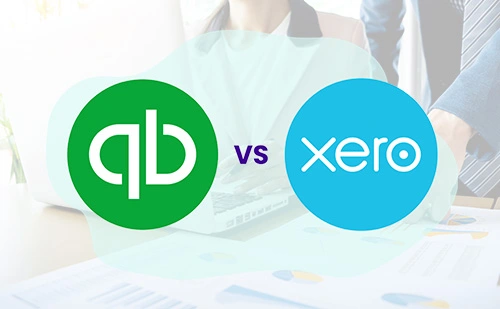What is a recession?
A recession is a prolonged period of an economic downturn that is both widespread and significant. A period of economic downturn often lasts at least six months or longer. For this reason, an economic recession is often recognized after a country’s gross domestic product declines for two consecutive quarters.
Most common impacts of recession on small businesses in Canada
- Reduced cash flow due to delayed customer payments and limited financing options
- Decline in sales due to customers prioritizing essential items over non-essential purchases
- Reduction in overall revenue, leading to cutbacks in marketing spending and employee budgets
- Marketing is often one of the first expenses to be eliminated during a recession, which can harm the ability to attract new customers
Successful small businesses come up with innovative and cost-effective strategies, such as social media campaigns, employee brand ambassadors, hiring economical outsourced accounting consultation to offset the effects of the recession.
Is Canada under recession?
Currently, Canada is not officially in a recession, but economic experts predict a “moderate” recession in 2023. To combat inflation, raising interest rates is the traditional solution, but it can also trigger a recession if done aggressively. With a recent increase in interest rates, Canadians are feeling uneasy about the state of the economy, with over half expressing concerns.
Recessions and the business cycle
The business cycle is a pattern of swings between expanding and deflating phases in an economy. During the expanding phase, the economy experiences growth, with output, income, employment, and retail sales increasing. Lenders may encourage consumers and businesses to take on more debt during this phase, making borrowing money easier and less expensive.
However, as debt becomes more accessible, asset prices start to increase, which may create an unsustainable illusion of growth through asset bubbles.
Eventually, economic expansion stalls, and a recession hits the economy. Loans and credit become less affordable, businesses slow down, and the stock market takes a hit. The recession is a normal, although unpleasant, part of the business cycle. While it can be difficult for businesses to navigate during a recession, understanding the business cycle and its phases can help businesses better prepare for and weather economic downturns.
How can small businesses prepare for the worst: Survival tips for a recession
To prepare for a potential recession, it is wise to review your financial plan and create contingency plans for situations that could negatively impact your finances, such as job loss, price increases, and stock market downturns. Remember, recessions are a normal part of the economic cycle and are typically temporary.
Manage cash flow
Managing cash flow is crucial for businesses, especially during tough economic times. Cash flow refers to the timing of money flowing in and out of the business. To manage cash flow, businesses should review their cash flow statement daily and create cash flow forecast charts for the next 3, 6, and 12 months. This helps anticipate periods when cash may be tight, allowing for strategies to prevent challenges. Businesses should also create best- and worst-case scenario budgets to better prepare for unexpected challenges or successes.
Control costs to gain more strength
As inflation reaches a 40-year high and a recession looms, controlling costs becomes more critical for businesses. It’s important to evaluate operations and reduce unnecessary expenses to strengthen cash position. This way, businesses can enter the next recession with lean and efficient operating procedures.
Safeguard revenue streams
To safeguard profits during a recession, it’s important for businesses to protect their strongest revenue channels. Unit economics can help identify these channels, and businesses should take steps to optimize pricing structures and consider making changes to their business model. This may include cutting products, services, or clients that do not generate strong profit margins.
New financing & debt management
During a recession, paying off debts may seem like a wise decision, but it can quickly drain your cash reserves. Instead, focus on paying down debts with the highest interest rates. Consider looking into potential financing options, such as establishing a line of credit, especially if your business experiences seasonal cash flow issues. However, before taking on new debt, carefully assess the additional costs and potential payment amounts to avoid worsening your company’s financial situation.
Prioritize building cash reserves
One way to weather tough economic times is to have strong cash reserves. To strengthen your company’s cash reserves, consider saving excess profits instead of reinvesting them in the business or paying dividends to shareholders. This extra cash can help you get through leaner times. Remember, having cash on hand is essential in a recession, so make it a priority to build up your reserves.
Consider online bookkeeping & financial accounting
As a small business owner in Canada, maintaining books can get even more frustrating when the clock is ticking with a recession nearby. It is advisable for startups to outsource bookkeeping services as it saves time, adds expert opinion & guidance, and makes you more flexible as an owner. You can simply hire an account consultant for an in-depth review and balance of your books.
Data-driven decision making
In challenging economic conditions, it’s important to make well-informed decisions. Even if you have a strong intuition as a business owner, it’s critical to consult your financial data, analyze trends, and forecast potential outcomes before making any significant changes to your operations. With cash reserves stretched thin, making even a minor misstep could have severe consequences, so relying on hard data to guide your decision-making is essential.
Get advice from finance experts & trusted advisors
Developing a recession strategy is challenging and frustrating. A well thought-out plan shouldn’t be left up to just one individual.
In these challenging times, you must reach out to your mentors, accountants or bookkeepers to assist in maintaining the books, etc. At Transcounts, our aim is to develop relationships and provide the best accounting and bookkeeping services. We have been providing bookkeeping services for small businesses in Vancouver for years, and would continue to do so even in these tough times.
Whether you need an accountant for business taxes, bookkeeping services for startups, tax auditing, we at Transcounts, are always ready to serve with the best online bookkeeping services.
Contents





